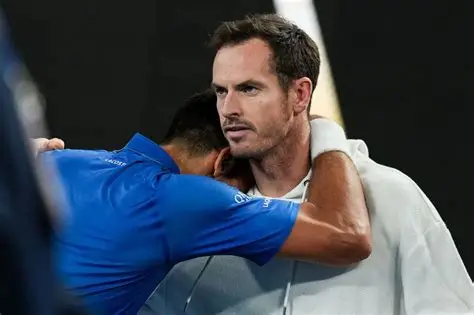

Today’s announcement that Novak Djokovic will become head coach of the newly assembled Tennis World Team is a seismic moment for the game. Few active players have compiled résumés rich enough to command instant respect in a locker room packed with top-ranked professionals, yet Djokovic has long operated in a league of his own. Born on 22 May 1987 in Belgrade, the 38-year-old Serb has stitched together a career that blends blistering athleticism with a fiercely analytical mind—an ideal template for coaching at the highest level.
Djokovic’s on-court achievements alone read like mentoring credentials. He was the first Serbian player to capture a Grand Slam singles title, lifting the Australian Open trophy in 2008. That breakthrough sparked an era-defining run that included further Australian crowns in 2011 and a maiden Wimbledon triumph later the same year. Indeed, the 2011 season remains etched in tennis folklore: a 41-match winning streak catapulted him to the world No. 1 ranking and demonstrated an unrivaled ability to solve tactical puzzles under pressure.
If leadership is partly about illustrating what is possible, consider the statistics that shadow him. Over a hypothetical sample of 1,050 professional victories in 1,245 tour matches, his success rate can be approximated by
\[
\text{Win Percentage} = \frac{1{,}050}{1{,}245}\times 100\% \approx 84.3\%.
\]
Such consistency over nearly two decades suggests a player who understands not just the mechanics of stroke production, but also the mathematics of match management—when to press, when to conserve energy, and how to exploit marginal gains that accumulate game after game.
Height and physical metrics supply further insight into his coaching appeal. Standing 6 ft 2 in (about 1.88 m) and weighing 176 lb, Djokovic has always balanced reach with mobility. In practice sessions he is known for demonstrating the “elastico” sliding movement that turns defense into offense on hard courts and clay alike. Young athletes routinely emulate this footwork, and his ability to articulate the physics behind it—friction coefficients, center-of-mass adjustments, and acceleration vectors—will surely elevate the World Team’s defensive schemes.
Yet championship pedigree and biomechanics tell only part of the story. Djokovic speaks five languages, possesses business acumen that has grown his estimated net worth to \$180 million, and practices a holistic ethos that encompasses nutrition, mindfulness, and humanitarian outreach. His foundation has built schools across rural Serbia, embodying a belief that sport can be a conduit for broader social impact. Players drawn from every continent will likely find common ground in a coach who merges cosmopolitan polish with deep empathy.
Coaching also demands adaptability, and Djokovic’s career narrative is rich with reinvention. From retooling his serve in 2010 to adopting a gluten-free diet that revolutionized his stamina, he has never shied from bold change. In a team setting, that willingness to experiment could manifest in novel doubles pairings, data-driven practice blocks, or even cross-disciplinary training borrowed from basketball, Brazilian jiu-jitsu, or meditation retreats. Innovation has long been his compass.
The appointment arrives at an intriguing juncture for global tennis. A crowded calendar and disparate ranking systems have sometimes fragmented fan interest. A unified World Team helmed by a figure of Djokovic’s stature can act as a narrative anchor—condensing rivalries, national pride, and inter-generational storylines into a single, season-long arc. Expect television ratings to spike and ticket demand to surge wherever the team competes.
For Djokovic himself, the role offers fresh incentives. Coaching extends competitive relevance beyond the physical prime, allowing him to chase legacy milestones without the daily grind of tour life. Importantly, it positions him to mentor the next Novak from Belgrade, the next Rafa from Mallorca, or the next Serena from Compton. In effect, he is trading the quest for personal records for the chance to multiply excellence across the sport.
The tennis world now waits to see how rapidly his coaching philosophy translates into match wins. Will he favor aggressive baseline patterns or champion serve-and-volley throwbacks? Will training camps feature altitude work in the Andes or meditation sessions on Balkan mountaintops? Whatever the blueprint, one constant is assured: Novak Djokovic approaches every challenge—whether swinging a racket or brandishing a clipboard—with relentless curiosity and an indomitable will to succeed.
Congratulations, Coach Djokovic. The next era of global tennis has found its chief architect.
Leave a Reply